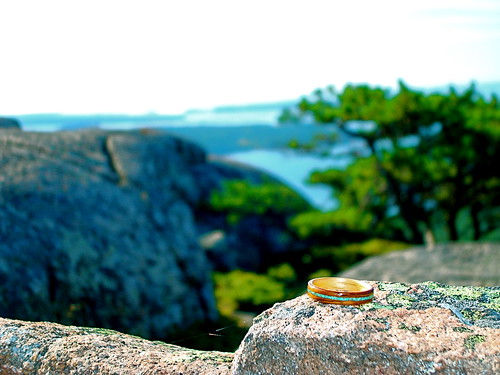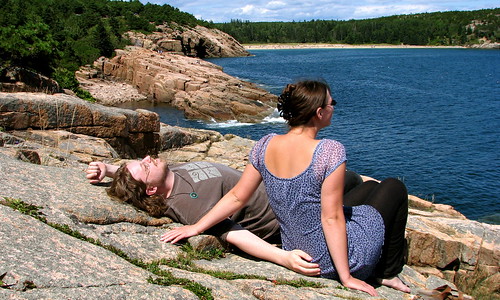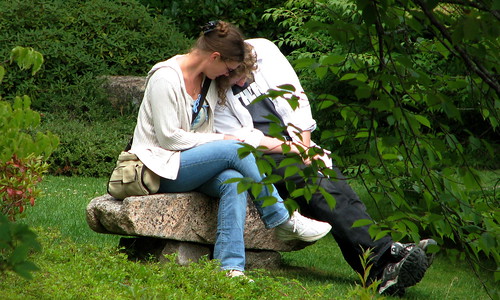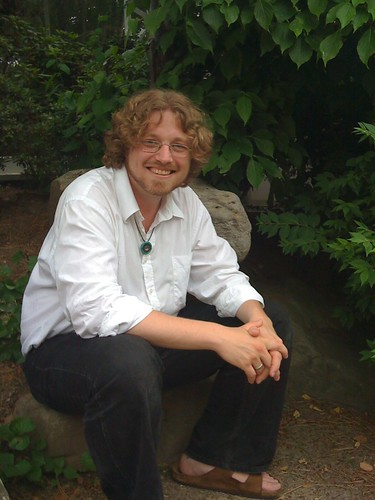Five or six thousand years ago, on the Ukrainian steppe, a group of loosely related tribes of horse herders, numbering perhaps fifty thousand people, lived and worked and loved and died, and as they did so they spoke a language that modern linguists call "Proto Indo European". Over the subsequent millennia, these tribes and their domesticated horses — many of which they trained for warfare and agriculture as well as riding — spread across Europe and Asia, creating a far-flung network of trade, culture, and language. One group moved southeast into India, founding the Vedic culture; and there Proto Indo European gradually changed, as languages do, into Sanskrit, and then Hindi and Urdu. Another group moved to Persia, and their language became Iranian. Another group moved to Greece, and another to Italy, and their languages became Greek and Latin (and, eventually, Italian, French, and Spanish). The group spread over the largest area was the Celts: at one time, Celtic languages — ancestors of modern Irish, Welsh, Scots Gaelic, and others — were spoken from the Black Sea to the Atlantic. And one small group moved up into Scandinavia, where their language became Proto Germanic — the ancestor of Norwegian, Swedish, German, Dutch, and English. Today almost half the people in the world speak a language descended from Proto Indo European.
The Proto Indo Europeans had no writing (or if they did, it hasn't been preserved), so there is no direct evidence of their language. But since the 19th century, linguists have been observing the great similarities between Indo European languages. For example, English has
wed, while German has
Wette "wager", and Old Frisian had
weddia "promise", and Gothic had
ga-wadjan "betroth", and Lithuanian has
vadouti "redeem a pledge", and Old Norse had
ve∂ja "wager", and Latin had
vadis "post bail", and so on. The meanings and sounds across all these languages were similar enough that coincidence was impossible: some reason had to be sought. The simplest explanation is that all these languages come from a single source (called "Proto Indo European" simply because it was the
protolanguage of many of the languages of India and Europe); and moreover, that the source language had a single word from which all these terms for wedding and promising and wagering are descended.
That word, it seems likely, was
wadh, meaning "pledge". It may even have been used for weddings (we know that the Proto Indo Europeans had weddings, because they had words for "wife" and "husband"). When some of the Proto Indo Europeans moved to Scandinavia, they took
wadh with them, but over time it changed to
wadjan. Shortly thereafter, when a large number of Scandinavians embarked on great migrations to the west, south, and east, one group, called the Angles (because they came from the angle of land where Denmark abuts Germany), traveled to England and brought their language with them; and of course we call that language Old English.
wadjan became
weddian, but it still meant "pledge, promise, marry".
Over the next fifteen hundred years, England was invaded multiple times by the Norse and the French, and the grammar of Old English was changed and its sounds shifted, and
weddian's meaning became focused only on marriage, and it became
wed. So when we speak of becoming wed, we are not speaking of a party, or of a man and a woman coming together, or of two families joining, or anything other than this simple thing: a promise.
The history of a word can give insight into its meaning, but so can its sounds. Many cultures (ancient and modern) believe in the spiritual power of sounds and letters; the Jewish and Norse are among the most famous. While not all these cultures agree on the meanings of all the sounds, there is often broad agreement; and quite often this is reflected in our words. As in
wed: taken together in this order, the sounds of W, E, and D indicate an act of will, a choice, which begins an initiation. It is a decision to step on a path of unmaking and remaking, a path that ends in a change — an opening — a doorway... an edge.









 It's not hard to understand why a low-budget wedding appeals to so many people as they contemplate marriage. Apart from all the hype about this being "the most important day of your life" (to which I always respond kindly that I certainly hope my life doesn't peak at twenty-eight), the fact is that most weddings are a step towards married life, family life, and all the dreams, plans and future expenses that those things entail.
It's not hard to understand why a low-budget wedding appeals to so many people as they contemplate marriage. Apart from all the hype about this being "the most important day of your life" (to which I always respond kindly that I certainly hope my life doesn't peak at twenty-eight), the fact is that most weddings are a step towards married life, family life, and all the dreams, plans and future expenses that those things entail.

